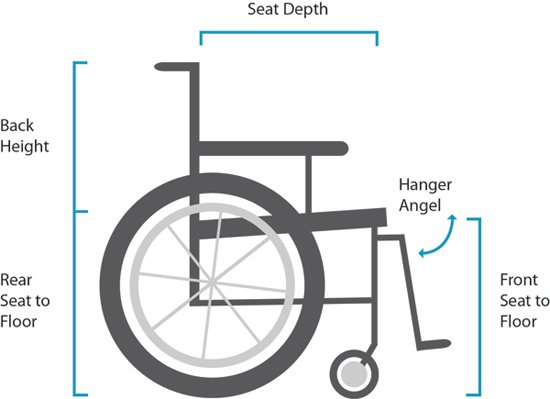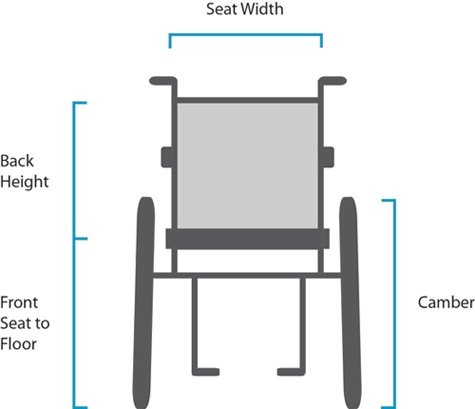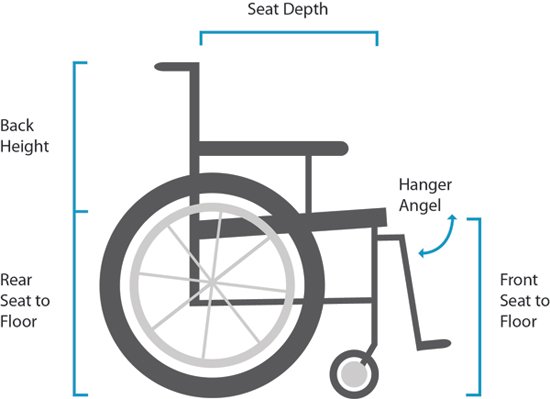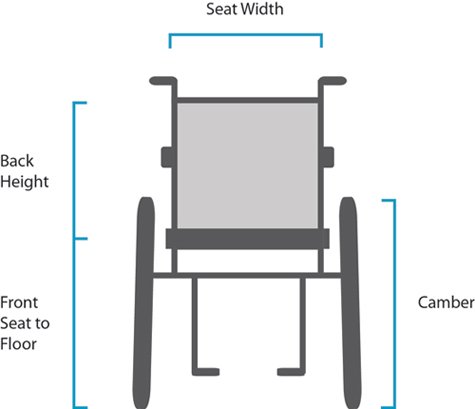HIGHLIGHTS
|
|
|
|


Seat Depth
Measure from the most posterior point of the body to the inside of the knee, minus at least two inches. Some prefer more leg overhang to make room for their hand when lifting their leg.
Back Height
Measured from the seat base to the top of the wheelchair back. Depends on how much upper back support is needed, and also affects freedom for the upper body to rotate.
Rear Seat to Floor
Measurement from the ground to the rear seat edge. Relative to the front seat-to-floor dimension, this determines the rearward slope ("dump" or "squeeze") of the wheelchair seat.
Hanger Angle
Determines how far the toes extend away from the body, measured from the horizontal. A tighter angle allows the wheelchair to turn around in less space. Depends in part on ability of the knee to bend towards the perpendicular.
Seat Width
Determined by the widest point of the body from knee to hip, plus an inch to ensure room to move. Consider bulk of clothing, particularly a heavy winter coat, if relevant.
Wheel Camber
Angle of the wheel relative to the vertical. More camber improves stability and agility, but also limits ability to pass through narrow spaces. A typical daily wheelchair uses three degrees of camber.
Front Seat to Floor
Measure the leg from the back of the knee to the sole of the foot. Then subtract the thickness of the cushion when it is compressed. Next, add a minimum of two inches for footrest clearance. Do not add the footrest clearance if the wheelchair will be foot-propelled.
Footrest Width
Measure from the inside of each leg-rest tubing the distance or desired distance between legrests.
Center of Gravity
Measure from the front of the seat back post to the center of the rear axle.
Seat to Footrest Length
Measure from the edge of the seat upholstery to the top rear of the footrest.









